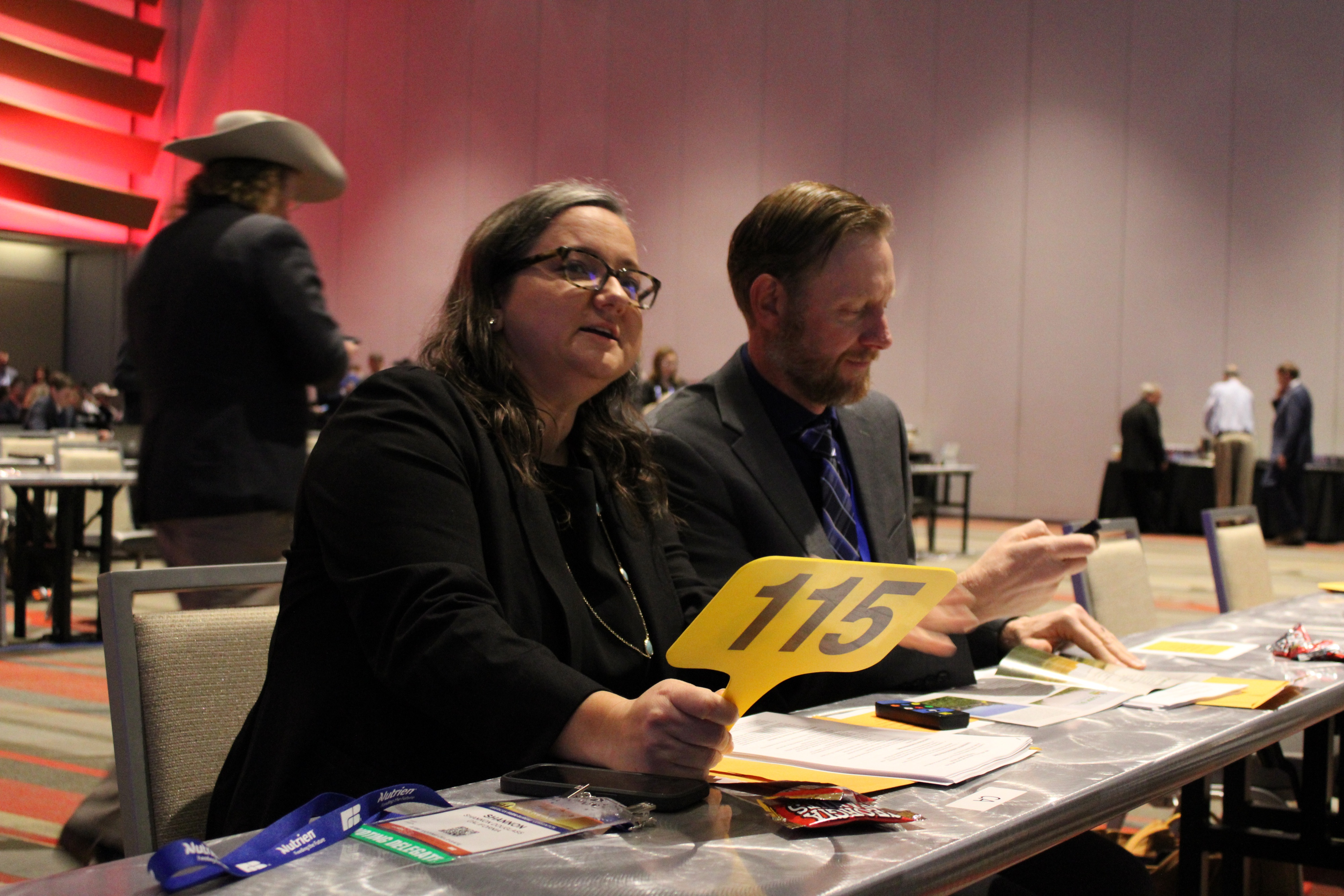Delegates adopt labor, trade, crop insurance policies


By Christine Souza
At the American Farm Bureau Federation’s 106th convention, held last month in San Antonio, Texas, voting delegates representing every state and nearly every agricultural commodity deliberated on policies affecting agricultural productivity and profitability. The policies approved at the meeting will guide the nation’s largest general farm organization in its legislative and regulatory efforts throughout 2025.
California Farm Bureau President Shannon Douglass said California farmers and ranchers were well represented at the national conference.
“Policies from California that were adopted at AFBF worked their way through our California Farm Bureau policy process,” she said.
Representing California Farm Bureau as voting delegates to the AFBF annual meeting were Douglass of Glenn County, First Vice President Shaun Crook of Tuolumne County, Second Vice President Ron Peterson of Stanislaus County and Mary Lou Coffelt of San Benito County.
California Farm Bureau successfully authored changes that were approved by the delegate body. This included added language to support broadening federal crop insurance for tree and vine losses and discouraging regional limitations.
“We want to widen the tent to allow more California farmers to qualify for crop insurance because it is such an important safety net,” Douglass said.
Other areas of interest to California included new policies to maintain a strong agricultural workforce. Delegates voted to stabilize labor costs. They also recommended the AFBF board study potential alternatives to the Adverse Effect Wage Rate methodology used for the H-2A visa program.
Other adopted policies were related to domestic usage and production of drones, trade, and proposals that push back against regulatory overreach on pesticides and other chemicals.
“Delegates from each state Farm Bureau and Puerto Rico directly addressed the challenges and opportunities facing farmers and ranchers,” said AFBF President Zippy Duvall. “The policies they set give us a roadmap to work with the new administration and Congress to address the needs of rural America.”
Duvall added that the organization’s roadmap for the year includes passage of a new farm bill, enacting regulatory reform and creating new markets.
California Farm Bureau has started the year’s policy development process with listening sessions held at the Annual Meeting in December. The feedback received was discussed further at a series of commodity advisory committee meetings, which are ongoing as members shape policy to guide the organization in 2026.
“The time is now to get involved in the California Farm Bureau policy development process by attending our commodity advisory committee meetings,” Douglass said. “This year, we opened up the CAC process so more members can participate. They don’t have to be an appointed committee member to share their individual issues.”
Learn more about the California Farm Bureau commodity advisory committee meetings happening across the state at www.cfbf.com/ag-advocacy/commodity-advisory-committee.
(Christine Souza is an assistant editor of Ag Alert. She may be contacted at csouza@cfbf.com.)




